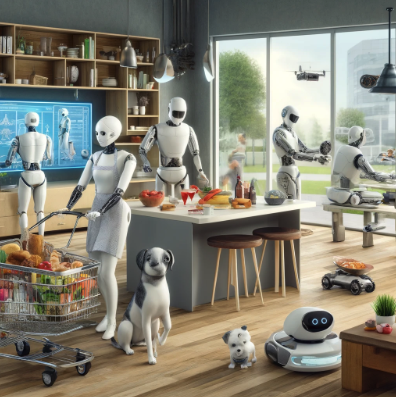|
In 1966, TV show Tomorrow's World reported on a household robot which could cook dinner, walk the dog, mind the baby, do the shopping, mix a cocktail and many other tasks. Nearly 50 years on, these visions are still a long way off… however,
Experts suggest that within the next decade, around 39% of the time spent on housework and caring for loved ones could be automated. Domestic robots have become the most widely produced and sold robots in the world. As such, they are becoming increasingly important in our daily lives. Whether it be a robot vacuum cleaner, a robot mop, or a robot lawn mower, these robots are helping us make household tasks easier and allowing us more time to spend with our families.But not all experts agree on the tasks that robots can do. A team from the Oxford Internet Institute asked 29 AI experts from the UK and 36 AI experts from Japan for their predictions on robots in the home. The team found that male UK experts tended to be more optimistic about domestic automation compared to their female counterparts. This was reversed in Japan, where female experts were more optimistic about domestic automation than their male counterparts. The experts' predictions of tasks that robots can do varied. While many believed that robots could do mundane tasks, such as cleaning or lawn mowing, only 28% of care work, including activities such as teaching your child, accompanying your child, or taking care of an older family member, was predicted to be automated. As robots become more and more advanced, it will be important to consider what tasks they can do, and who should be responsible for their use. Robots have the potential to take over mundane tasks, freeing up time for us to spend on tasks that require more human interaction. But care work and teaching should still be handled by humans, as robots may not be able to provide the same level of care and understanding that a human can. More on miteradio.com.au (press play)
0 Comments
Leave a Reply. |
Archives
July 2024
Categories
All
|

 RSS Feed
RSS Feed